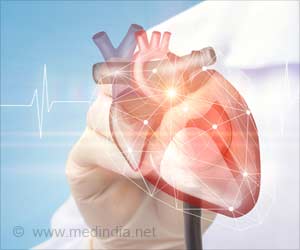Researchers from Michigan State University have revealed that damage caused during cardiac arrest can be more severe than previously thought.
Researchers from Michigan State University have revealed that damage caused during cardiac arrest can be more severe than previously thought.
They found that cholesterol crystals released in the bloodstream during a cardiac attack or stroke can wreck artery linings much further away from the site of the attack, thus putting the patients at greater risk than previously thought.Lead researcher George Abela, a physician in Michigan State University's College of Human Medicine and chief of the Department of Medicine's cardiology section tested carotid arteries in a laboratory by injecting cholesterol crystals into them.
"Cholesterol has been shown to expand when crystallizing and then be released into the circulation following a cardiac event," said Abela.
"We found that the flow of sharp-ended crystals in arteries damage the lining of arteries and decrease the ability of arteries to dilate properly at intervals far away from the site of the attack.
"These findings have important clinical implications. We found the original injury was being transmitted downstream.
"We may need to expand the testing that we have patients undergo to make sure more damage is not being done during a cardiac attack or stroke," he added.
Advertisement
Source-ANI
LIN














